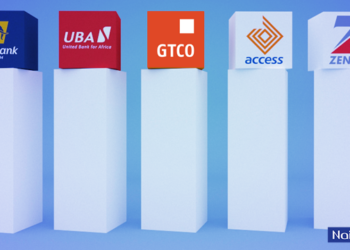Very recently a high court sitting in Lagos State sanctioned the merger between Access and Diamond banks. The court sanction, more or less, put paid on and legitimized the scheme of arrangement for the merger. It is very much like a man and a woman going to court to get their marriage legitimized. Following that court sanction, Access Bank and Diamond Bank became one, as it were, through a corporate merger.
What this means for Diamond and Access Bank Shareholders
What is a corporate merger: A corporate merger is an agreement between two existing companies to become one “new” company? Like in marriages where the woman drops her sure name to take on that of the husband, or still use her sure name while adding that of the husband, corporate mergers often result in new company names, or one that combines the names of the fusing companies together. For example, in year 2000, following the merger of Glaxo Welcome and SmithKlime Beecham GSK, what we know today as Glaxo SmithKlime Plc was born. In 2017, Dow Chemical and DuPont merged to become DowDuPont, the World’s largest chemical company in terms of sales. As it stands, it is not yet clear if we will see a corporation called “AccessDiamond Bank” or “DiamondAccess Bank”, but my guess is that we may still have Access Bank as a corporation in Nigeria, at least in the short terms.
Why Do Companies Merge: Companies merge for different reasons ranging from product and investment diversification to international market penetration. Investment diversification seems to be one of the reasons for the Access Diamond bank merger. Another reason for this merger could be to take advantage of operational efficiencies between the two banks. This is the often talked about economies of scale.
How Mergers Affect Shareholders: The reasons adduced above seem to be of benefit to the banks, but the shareholder would like to know what is in the merger for him or her. The question that I often receive is how does this merger affect me as a shareholder? Mergers affect shareholders in different ways and at different times. Here are a few of the ways you will be or might have been affected by the Access Diamond bank merger.
Stock Price Effect: Usually, the merger of two companies cause increased volatility in the prices of both the acquiring and acquired companies. Normally, the prices of the acquiring company experience a temporary drop in the days preceding the merger while the price of the target or acquired company experiences an uptick. After the merger, the price of the combined company is usually higher or expected to be higher than that of either the acquiring company or the target company.
This increase in the price of the merged company benefits the shareholders of the target company, the more. These effects were very obvious in the prices of Diamond Bank which went from N0.95 on December 11, 2018, two days before the record date of the merger to N1.81, on December 27, 2018. Access Bank, on the other hand, went from N7.5 to N7.0 on those respective days.
Share Voting Power Effect: One of the joys and advantages of owning shares of a company is that such ownership grants you, the shareholder, voting rights. Depending on the voting techniques used, a shareholder’ voting power depends on the number of shares he or she holds. One of the effects of a merger is that the number of shares increases and because such increase is not in proportion to the premerger share ownership in either the target or acquiring companies, mergers have a dilutive effect.
This is especially so in a share for share merger, the like that took place between Access Bank and Diamond Bank. Unfortunately, the dilutive effect is not equal and opposite. In fact, because the shareholders of the target company are being absorbed into a much larger company, they usually suffer significant erosion of voting power while the shareholders of the acquiring company suffer a marginal loss of voting power. In the case of Diamond Bank shareholders, they will lose 7 shares in exchange for 2. It is like, if you had 7 voting cards prior to the merger, now you have 2.
Understanding the Scheme of Arrangement: According to the latest shareholder information released by Access Bank, the scheme of arrangement of the merger is that it is going to be both share for share and cash for share transaction. Diamond Bank shareholders of record as at December 13, 2018, would receive N1 per share as well as 2 Access Bank shares for every 7 shares of Diamond Bank held on that date. What does this translate into in a layman’s language?
The shareholder information has it that Diamond Bank shareholders would receive N3.13 per share from the merger and a 260% premium, but that is an all-in receipt, not the cash that will hit your pocket. The cash you are getting is N1 per share, while the rest N2.13 is buried in the valuation of Access Bank shares you will receive. A few people had asked me if I agree with that information, and I think I do. Here are how those numbers came about:

As seen above, the numbers make sense and the deal looks good for Diamond Bank shareholders, however, what comes to your pocket as a shareholder now is the N1 per share cash while the rest of the goodies are stored in the Access Bank shares you received in what is called unrealized gain, unless you decide to sell those shares now. So in a layman’s language, you are “selling” your Diamond Bank shares worth N6.09 for N21.9 and using N14.9 of that proceed to buy 2 shares of Access Bank and keep the remaining N7.00
Accounting and Tax Treatment for Access Bank/Diamond Bank merger
Gains could mean tax- With corporate actions like this, there is always the need to be careful how the cash received is treated or accounted for, to avoid payment of capital gains tax. “Section 32 of Capital Gains Tax Act (CGTA) Cap C1 LFN 2004 provides that a person shall not be chargeable to tax under the Act, in respect of any gains arising from the acquisition of the shares of a company, either merged with, or taken over or absorbed by another company, as a result of which the acquired company has lost its identity.
However, where shareholders are either wholly or partly paid in cash for surrendering their shares in the ceased business, the gains arising from the cash payment will be subject to CGT”. As can be deduced from the above, the catchphrase is “the gains arising from”, so if you treat the cash as income or proceed from the sale of investment, you may be obligated to pay capital gains tax, but that treatment may not be in your interest, from capital gains perspective. The best treatment for the cash is to account for it as what is called “return of capital”, which is usually a non-taxable event.
A return of capital is an event where you receive part of your original investment back and you are not required to pay tax on it unless you have recovered all your cost. The implication of this treatment is that the cost basis of your Access Bank shares which is the carryover of your cost basis in Diamond Bank shares will be reduced by the amount of cash received. By so doing, you will postpone the payment of tax until when you eventually sell the Access Bank shares you received. It may be necessary to find out from your broker the accounting treatment they gave or would give the merger on their books on your behalf and to remind them of the need to minimize tax liability.

















